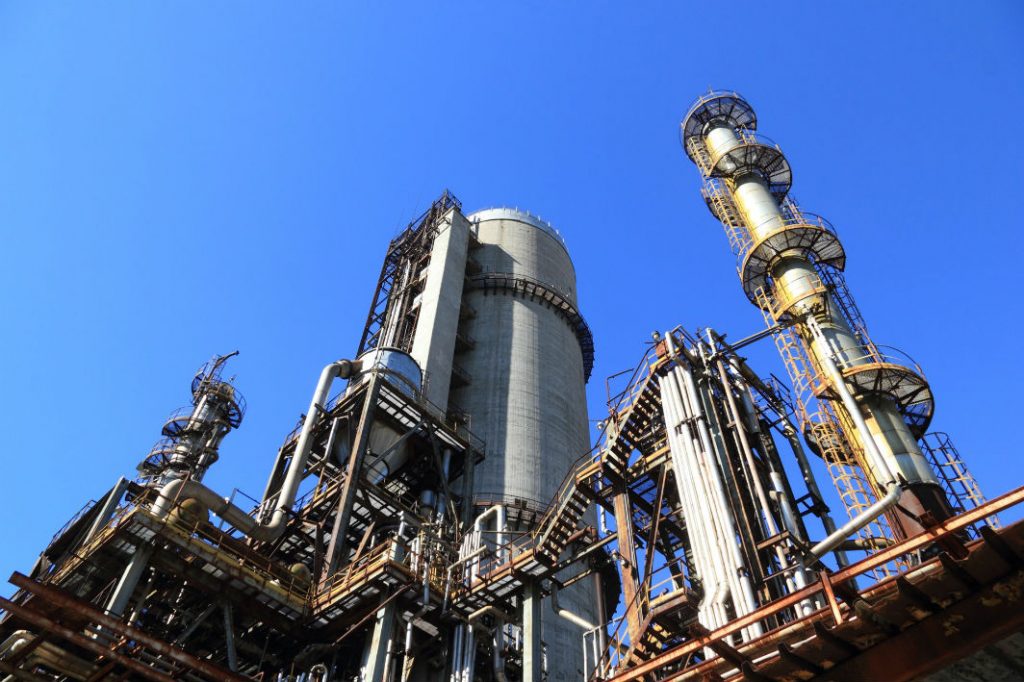Heavy industry is failing to embed energy efficiency fast enough, report warns
New analysis from the World Resources Institute (WRI) warns of worrying lack of progress on 2020 global emissions targets.
The paper argues that heavy industry is not doing enough to use energy more efficiently. Without progress the world is unlikely to see global greenhouse gas emissions peak in 2020, which is likely to be necessary to stay within the 1.5C (34.7F) or 2C warming thresholds that scientists have identified as key to the future safety of the planet.
The troubling signals for the world’s industries show that coal-fired generation is still increasing, with coal-fired power plants continuing to be built in some areas, while existing plants are not being removed from service fast enough.
But positive analysis did show important steps forward; on renewable energy, curtailing greenhouse gas emissions from shipping and public sector investment in reducing emissions. These suggest progress in other aspects of tackling climate change is also possible, with greater effort from the public and private sectors.
WRI has set out six milestones to help determine progress on carbon emissions that can help businesses improve. Here’s the Hub’s quick lowdown on how things are looking…
2020 Energy Milestone
Positively, global renewable electricity generation reached 25% in 2017. But goals to totally prevent new coal plants being built, and retire existing plants are failing. Hub verdict: decent progress.
2020 Transport Milestone
The share of EVs in global sales of new vehicles was just 1.4%, and EVs are projected to only account for 3% of new car sales in 2020. This just isn’t fast enough to tackle the 15% of global emissions transportation causes. Hub verdict: poor progress.
2020 Land Use Milestone
Forest lost isn’t being prevented fast enough. Businesses need to look at how land is used better, and there are financial incentives: if further deforestation is avoided, the global economy would be boosted by at least US$40 to 80 billion. Hub verdict: poor progress.
2020 Industry Milestone
Emissions from industrial processing have increased almost twofold compared with 1990 levels. Without better action on elements like energy efficiency, emissions from the industrial sector are expected to continue to increase to over 17% higher than 2016 levels in 2050. Hub verdict: poor progress.
2020 Infrastructure Milestone
For now, investment in low-carbon infrastructure is likely not commensurate with what is needed. Positively, the number of zero energy buildings has been growing exponentially, but high-performance options like near-zero energy buildings account for less than 5% of construction in most markets today. Hub verdict: middling progress.
2020 Finance Milestone
In 2016, global investment to tackle climate change is estimated to have totalled between $455 billion
and $681 billion, with the high estimate including investment in energy efficiency. And, fossil fuel subsidies have declined from $443 billion in 2010 to $373 billion in 2015. Hub verdict: good progress.
What does it all mean for Hub readers?
The study is yet more evidence that energy and transport markers, key pillars of SECR and ESOS reporting, are essential elements to tackling global emissions and delivering more sustainable business.
WRI’s report may appear highly strategic, but in reality its findings can and should be applied to every business: seek energy efficiency, minimise transport emissions and you will find compelling carbon and financial benefits.

